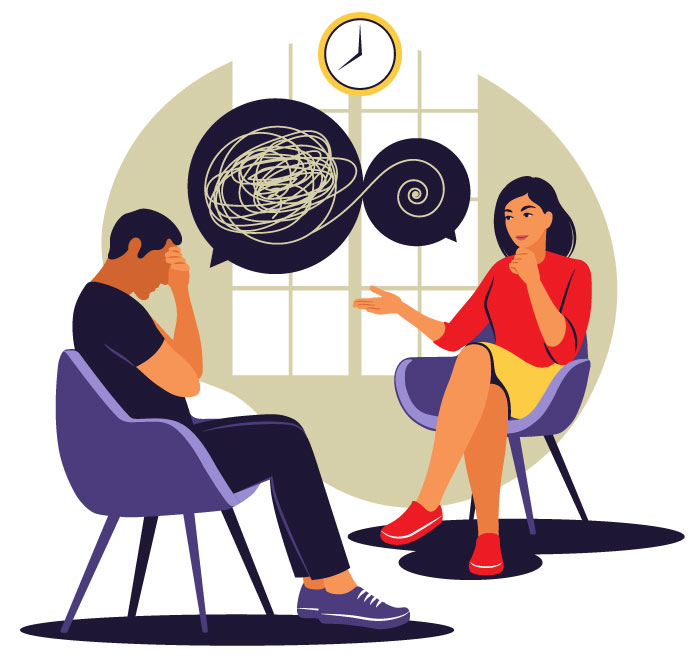Get the help you need with
Psychotherpy
The methods and tools to change your life
Understanding Psychotherapy
Life often presents challenges, stress and or repetitive behaviors without working with an impartial professional. Sometimes, we rely on old solutions to solve new problems, which can lead to disappointing results. Through psychotherapy, individuals gain insight into how past experiences can impact present life. Psychotherapy promotes self-awareness, helping people identify emotional triggers or recurring patterns. This deeper understanding can empower individuals to enhance various aspects of their life, such as relationships, career success, physical health, grieving processes and workplace challenges. Psychotherapy aims to strengthen coping mechanisms and provide tools to navigate life difficulties while fostering personal growth. It supports daily functioning and helps alleviate symptoms or conditions. In some cases, psychotherapy works alongside medication for optimized care.
Applications of Psychotherapy
Psychotherapy is versatile, addressing an array of conditions, disorders, and emotional challenges. Issues that may benefit from psychotherapy include:

- Depression
- Anxiety
- OCD
- PTSD
- Bipolar Disorder
- Personality disorders
- Schizophrenia
- Conflict resolution
- Coping with major life changes
- Sleep issues, such as insomnia
